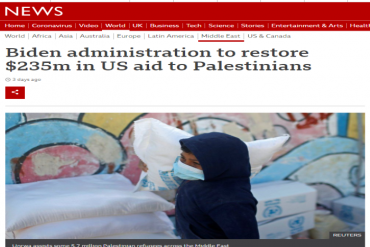1) At the INSS Raz Zimmt analyses ‘The Crisis of Public Confidence in the Iranian Regime’.
“In mid-February 2020, a few weeks after the Ukrainian airliner was shot down, public confidence in the Iranian regime suffered another serious blow following the outbreak of the coronavirus, which within a few days spread from the city of Qom, a Shiite pilgrimage site, to most parts of the country. The regime’s handling of the outbreak of the virus, which has so far claimed the lives of hundreds of Iranians, again exposed a series of failures and attempted cover-ups that further embittered the public and aroused piercing public criticism. For instance, the airline Mahan Air, which is owned by the Revolutionary Guards, continued to fly to and from China even after the outbreak of the disease, and even after the Iranian authorities declared in early February a halt to flights between the countries.”
2) Haviv Rettig Gur profiles ‘the ruthless economist directing Israel’s drastic virus fight’ at the Times of Israel.
““Barsi” led an aggressive effort to slow the virus’s penetration into Israel — not because he thought he could stop it, but because slowing its spread would prevent overtaxing Israel’s hospitals and health infrastructures. The thinking was sound, health experts said. Israel only has so many respirators and lung specialists, making the death toll from the virus a function not of the number of people who fall ill, but of the rate at which they do so.
If the number of ill at any given time could be kept at levels that Israel’s health infrastructure could accommodate, far more would survive infection. Slowing the spread could mean the difference between a few hundred dead by the end of the crisis and many thousands or even more who succumb because hospitals could not treat them properly and ventilators were in short supply.”
3) Writing at The Hill, Eitan Dangot discusses the Palestinian Islamic Jihad’s efforts to disrupt calm in the Gaza Strip.
“In Gaza, the PIJ has been building an arsenal of ballistic rockets, whose quantity and variety have become as threatening as that of Hamas. Since its founding in the late 1980s, the PIJ has been ideologically committed to destroying the State of Israel and establishing an Islamist state in its place. Unencumbered by any obligation to deal with civilian needs, the PIJ deals exclusively with the recruitment of operatives and solicitation of funds. […]
In terms of ideology, we know the PIJ originates from the same breeding ground as Hamas and shares a similar foundational identity. More ominously, though, the PIJ has identified with the path of the Iranian Islamic Revolution since 1979 and created strong reciprocal relations with Tehran. The Iranians extend financial credit lines to the PIJ, funding that it uses to build up and activate its forces. It also enjoys ties with Hezbollah, which acts as an influencing factor in the PIJ’s force build-up and training. The PIJ’s has headquarters in Gaza, Syria and Lebanon, which strengthens the radical ties between this Sunni organization and the Shi’ite axis.”
4) At the JCPA Yoni Ben Menachem reports on the trial of Hamas activists in Saudi Arabia.
“In Saudi Arabia, the trial of 68 Hamas members has begun. They were arrested in April 2019 in Saudi Arabia; most of the members were Palestinians from the Palestinian territories who immigrated to Saudi Arabia, and some of them were Jordanian civilians. […]
The public trial of Hamas members in Saudi Arabia is enraging Hamas activists in the West Bank, the Gaza Strip, and among Hamas supporters throughout the Arab world.
During the first court hearing, the charges against them were enumerated, and the Hamas activists arrested in Saudi Arabia were accused of belonging to a “terrorist entity” and “supporting and financing a terrorist organization.” […]
Saudi Arabia transmitted intelligence that dozens of Hamas activists were engaged in collecting and laundering money for the Hamas military arm and terrorist activity against Israel. The money raised was then transferred to Turkey and from there to the Gaza Strip.”




Many thanks extremely helpful. Will share website with my good friends.